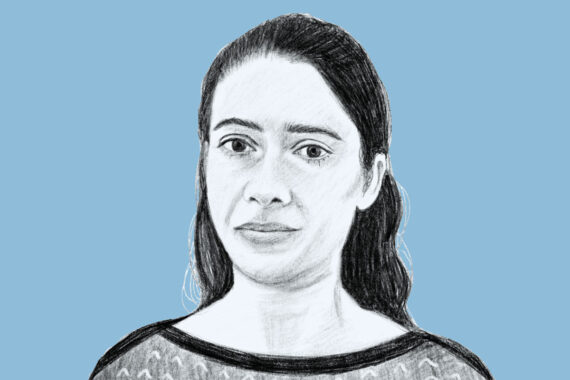We’re not waving, we’re drowning

Columnist Dr Katie Musgrave welcomes the licensing of anastrozole but criticises NHS England’s lack of consultation with GPs who are already struggling to stay afloat
Imagine you are a fisherman working alone in the deep, cold waters of the North Sea. A loud clunk alerts you that something has gone amiss with your boat, which rapidly takes on water, then sinks. The next thing you know, you are floundering in the icy sea, and you realise you have no hope of surviving.
But what’s this? A deep chugging noise, and a pleasure boat comes into view. Laden with tourists, and sailing steadily towards you. It’s a miracle! You are saved! Fighting back tears, you shout to the boat, waving frantically. The tourists spot you, and start to call to one another, waving back. The captain toots his horn, but then adjusts the steering to avoid you, and sails on past. In just a few minutes, their boat is gone, the sea is empty, and you are alone. I don’t need to tell you what happens next.
The announcement last week that thousands of women might be prevented from developing breast cancer, by the changed licensing of anastrozole, should have been a moment for celebration. We will all have friends, family members or colleagues who have been affected by this disease. The medication will undoubtedly prove life changing – and life saving – for many women, and it is wonderful that it can be made available on the NHS.
What didn’t fill me with delight was the realisation that NHS England was announcing such a significant change in healthcare policy without clear directions to GPs exactly who might be eligible, whom we might refer to, and what – if any – further guidance there might be. Do they not understand that such a public announcement will undoubtedly lead many women, quite understandably, to contact their GP?
Indeed, the explicit instructions from NHS England’s national clinical director for cancer Professor Peter Johnson on BBC Radio 4 last Tuesday were to ‘contact your GP’. Why not? After all, we are an endless resource, with unlimited capacity to take on extra work, and provide every service under the sun.
Why can’t these sorts of significant new developments come with a helpline number that patients can call? Why couldn’t NHS England commission a service that could manage patients directly? In the current climate, sadly the reality is that our involvement will mean other patients are unable to access life-saving GP assessments and treatments, which only we can provide.
Too often it feels as if there is a complete disconnect between NHS England, their instructions and communications, and the reality of working on the ground in general practice. Do they think we each have half an hour a day to field calls from concerned women, advising that we don’t know what will happen about anastrozole, nor even when we might know anything?
Well, for the avoidance of doubt: we are presently working in often intolerable conditions where the mismatch between demand and availability of care is so great that many of us are daily taking short cuts that are likely to be causing significant health harms. It would be wonderful to be working in a health service where we had ample spare time to counsel women on the pros and cons of preventative life-saving medications. The reality is many of our frailest and most vulnerable patients can barely access a GP when they are delirious with UTIs, or displaying classic red flags that need urgent referrals.
Countless lives are daily being put at risk by the precarious state of the wider NHS: from timely access to a GP appointment, to acceptable treatment in our country’s A&E departments. So I have to confess, the anastrozole announcement felt like putting a cherry on top of a pile of something unmentionable.
It is infuriating to have to continually communicate the state of crisis that general practice is in. The GP workforce is on its knees, and many are drawing up exit plans or minimising their clinical sessions.
NHS England need to know that we are not waving, we are drowning – and that when we are gone, the whole of the NHS will be done for, too.
Dr Katie Musgrave is a GP in Devon and quality improvement fellow for the South West
Related Articles
READERS' COMMENTS [4]
Please note, only GPs are permitted to add comments to articles










Nhse don’t have any interest in the opinion of the people who do any real on the ground GP work. Until that changes, this will carry on x infinity.
Sometimes it seems that all regulations that have been instituted over the last few decades, have destroyed basic humanity!
Said as it is. Articulate, accurate and true. Look after yourself. Nobody else will
Was at a local cancer event a few weeks ago and this came up. The local breast surgeon had devised a lengthy checklist and advice for GPS about this drug. And all the monitoring that was needed. Sounded like maybe secondary care should be prescribing, or at the very least a shared care protocol.
But why? They said.
We have this helpful 4 page document for you to consult.
Primary care is dead.